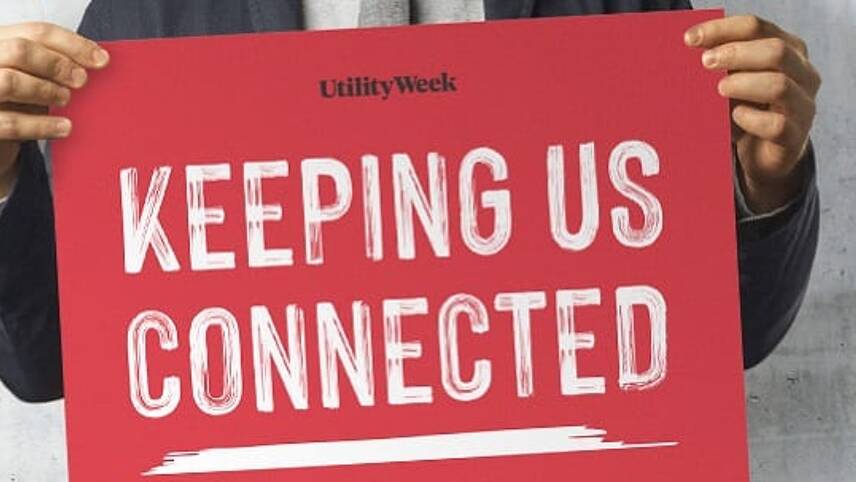You’ve reached your limit!
To continue enjoying Utility Week Innovate, brought to you in association with Utility Week Live or gain unlimited Utility Week site access choose the option that applies to you below:
Register to access Utility Week Innovate
- Get the latest insight on frontline business challenges
- Receive specialist sector newsletters to keep you informed
- Access our Utility Week Innovate content for free
- Join us in bringing collaborative innovation to life at Utility Week Live

In our Keeping us Connected series, Utility Week talks to Severn Trent’s head of water treatment Grant Batty about how the company trained a reserve army to cover frontline roles and put systems in place to allow isolating staff to provide remote assistance with site inspections.
As part of the company’s pandemic response plan, Severn Trent had to quickly find understudies for frontline workers at water treatment sites to fill the roles left empty if illness forced staff to isolate. The company calculated that between 20 to 30 per cent of staff could be unavailable at any one time due to illness, caring or distancing.
“Immediately we knew we needed to come up with a plan that allowed us to cover these frontline roles,” said Batty. “They are critical roles and our operational model for water treatment is quite resource hungry – we had to cover the sites to ensure essential services continued.”
A plea was made across the business for anyone with transferable skills to be recruited. Batty said the response was overwhelmingly positive.
“Within a week we had a great response of about 170 people saying they were willing to help out. It was amazing how quickly people wanted to support us in the frontline. Despite the concerns about safety, there was a feeling that people wanted to help provide the key service for customers and the NHS.”
Volunteers were assessed to establish which skills they needed to acquire. They then completed personalised online courses before undergoing socially-distanced on-site training. Within three weeks, 70 people were trained and ready to be called upon in the event of absences.
Batty said an average of 15 per cent of staff have been in isolation across the company at any given moment but in some teams this figure is as high as 50 per cent, meaning the reserves have been essential.
He said filling the roles was made possible by Lucy Quick, Birmingham resilience programme manager, whose core work around a large supply project slowed when coronavirus hit.
Batty described how Quick picked up the mantle and designed the whole process of matching skills and people, seeing the project through with the help of her line manager Kate Vickers.
Arrangements were also put in place to allow more experienced operatives who are isolating or working from home to view control rooms remotely and provide guidance to newly trained cover workers via calls and video messaging.
“When less experienced staff came up against a particular problem they could talk and walk through the issues and be supported during the process to locate the correct valves, for example,” Batty said. “This ensured we could continue to run the sites without interruption to service or supply and kept water flowing for customers.”
He said the changes showed how much more could be done in terms of virtual training and remote operation than Batty had ever thought possible: “Another benefit is we have a lot more people interested in water treatment and operations than before from people who had been in office-based roles.”
Batty said the company, like many in the utilities sector, has been tied to the notion of staff being on-site or always working from an office but this could open up flexible working opportunities.
“The virtual environment we managed to replicate for homeworking that shows how the site is working has been a huge learning curve for us. Having competent people able to see what is happening on a site and use video messaging to communicate with staff on the site about what needs to be done and the steps to take has been extremely powerful. This is something we will embed going forward and subtly change the way we approach tasks in the future.
“We have always been wedded to having people on site, but the last few weeks have shown us it is as effective to work remotely than having all those people on-site.”
In addition to the environmental benefits of not travelling, Batty said team meetings have become more focused and precise over video meetings than they were face-to-face.
“When we come out of Covid-19, I think it will change the paradigm of how we work as an organisation and really challenge the being wedded to the office approach we’ve had in the past,” Batty said. “Utilities in general are very focused on being on-site or based in an office with working from home being a bit of a taboo but this is really going to change the approach.”
He said the situation has presented solutions the team hadn’t even known it needed: “We thought it would all be difficult, but it’s been the opposite: people have been more focused and driven and the virtual meeting approach has been really productive. Also, people have now had their eyes opened from a career point of view, which has been a high point.”
Batty said the steps taken will help the company get through the crisis without concern: “It fills me with a lot of confidence because whatever the next few months throws at us, we’ve got a contingency plan and we’re ready.”




Please login or Register to leave a comment.